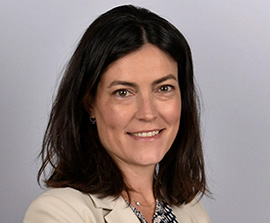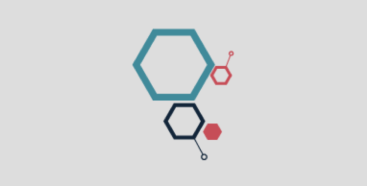The work being done by Spanish startups as an active part of the innovative ecosystem that is being created around new technologies in the field of healthcare is being fundamental in driving a true digital transformation in the healthcare sector, which is so necessary for everyone.
Now is the time to accelerate the digital transformation. There are already exciting projects seeking funding and business support that will allow them to leave the ideas lab and become healthcare solutions with real and tangible application for healthcare professionals, hospitals and patients. Innovation HUBs are also being created, where relevant initiatives are co-created, identified and selected and then promoted by large companies or investment funds.
Projects capable of revolutionizing our health
The LLYC Healthcare team was able to learn first-hand about some examples of inspiring projects at a meeting we organized at Barcelona Health Hub, an association that aims to promote innovation in digital health and its transfer to the sector, linking startups, healthcare organizations, companies and investors. This networking space makes available to its members an international ecosystem of like-minded companies dedicated to impacting healthcare systems and allows to connect in the same physical space healthcare companies, pharmaceutical, insurance, technology, universities, hospitals, consultants and patient associations. A true space of connection where creativity and innovation possibilities have no limits. Until some of these revolutionary projects come up against important obstacles that still exist and that prevent progress in the necessary technological transformation of the sector, such as: lack of financing, long bureaucratic processes or the complex regulation of the healthcare system.
Among the companies we met is Cebiotex, an innovative biotech startup, spin-off of the Universitat Politècnica de Catalunya (UPC) and the Hospital Sant Joan de Déu de Barcelona (HSJD) that researches and develops biomedical solutions with the aim of addressing unmet medical needs in oncology, both pediatric and adult.
We also discovered the solutions proposed by Accexible, a platform that identifies vocal biomarkers for the early detection of mental health diseases through language. This type of artificial intelligence solutions could revolutionize the prevention and monitoring of pathologies such as depression or anxiety and cognitive impairment, such as Alzheimer’s, Parkinson’s, stroke or persistent COVID. Anyone with a device with internet access and a microphone can perform a series of tests, record them and send the information to the cloud. In this way, you can analyze what you say and how you say it; providing a result that guides the diagnosis of the health professional. So far in Accexible they have developed this tool that allows to confirm, with an accuracy of 90%, if a person suffers from MCI or dementia in early stages.
Doctomatic told us that they are committed to creating tools to support healthcare professionals. They are now developing a remote monitoring system for patients, focused on eliminating the burden of more than 5 billion chronic patients worldwide. This app allows their physicians to monitor their patients’ health data on a daily basis and help them predict the deterioration of their conditions. The app has a reader with visual artificial intelligence that reads and recognizes the digits on the display screens of each medical device and digitizes this data to connect it to a platform that is accessible to the physician and the entire healthcare team.
One of the big challenges: lack of funding
We were also able to gain a better understanding of how investment funds that are determined to boost innovation in healthcare work. This is the case of companies like Asabys, a venture capital firm in Barcelona that invests comprehensively in human health. They are especially active in the healthtech and biopharma industries, from biotech companies, medical devices (invasive, implantable) and digital health. They currently have 116 million assets under management and their objective is to invest in Spain and abroad in highly innovative and transformative technologies.
Capital Cell is the first online equity crowdfunding platform in Europe specialized in biomedicine, one of the most profitable sectors in the world. This is another example of a company that invests in health innovation to promote projects in their earliest stages. They provide a solution to one of the main problems faced by startups today, which in the world of health and biotechnology is even more serious: financing.
When Capital Cell receives a dealflow, an investment opportunity, the first thing it does is ask for a presentation of the project, assess the team and certify that the project is reliable. It helps, for example, if the project is backed by an institution, university, business school or hospital. From there, the project is referred to the bio expert network, a team of 3,000 experts who evaluate the project. If it is confirmed as suitable, which happens in approximately 7 out of 10 cases, they begin to prepare the campaign, decide on the size, price, investment valuation and how they will make the project profitable for investors.
Boosting technological innovation beyond drug research
As mentioned at the beginning of this article, there are already startup accelerator initiatives and innovation spaces promoted by healthcare and pharmaceutical companies. Initiatives such as DKV Impacta with Impact Hub, Roche Púlsar together with Telefónica’s Wayra, the collaboration of Janssen with Juan Roig’s Lanzadera accelerator, or Pfizer with The CUBE are good examples of how the pharmaceutical industry is supporting entrepreneurial leaders to promote innovation in healthcare and in specific pathologies. These initiatives seek innovative technological projects that have a real impact on improving the health and quality of life of patients, responding to a series of specific challenges and unmet needs. Other companies, such as Novartis with its Biome and Neurohouse initiatives, are committed to building spaces for connection and interaction between the agents of the digital ecosystem, from startups and academics to the main players in the industry to provide them with spaces for co-creation, dialogue and collaborative work that allow them to advance and improve in addressing and attending to specific health needs.
It is exciting to follow this innovative movement that involves the health sector to continue contributing from our experience as consultants in communication, public affairs and digital marketing. This digitalization has been driven since the COVID 19 pandemic, which exposed the weaknesses of our healthcare system and has brought new needs and a society more open to change.
Gina Rosell Socia y Directora Senior LLYC Health Europa




